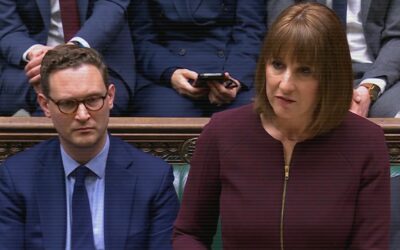TaxWatch has submitted a complaint to the Tax Disciplinary Panel about the conduct of an individual identified as “Mr Red” in the case of Murray Group Holdings vs HMRC.
TaxWatch believes that it has managed to uncover the identity of Mr Red, who continues to practice as a Chartered Tax Advisor, despite evidence of serious misconduct he engaged in when an employee of Rangers Football Club.
The case of Murray Group Holdings vs HMRC, known as “The Big Tax Case”, was one of the most important tax decisions in recent times.
The case involved a disguised remuneration tax avoidance scheme operated by Rangers Football Club for a number of years that involved players and staff being paid in the form of loans via an offshore trust. The loans were not declared as income on the tax returns of the players leading to a significant reduction in their tax liabilities.
HMRC believed that these loans were in fact remuneration and should be taxed as income.
In 2017, the Supreme Court found that the payments were earnings under PAYE legislation which meant that the club should have withheld tax due and paid it to HMRC.
Although HMRC lost their case at both the First Tier Tax Tribunal and the Upper Tier Tribunal, the findings of facts of those bodies revealed some extraordinary behaviour on the part of officials of Rangers Football Club in an effort to cover up the scheme.
In particular, the Tribunal singled out the behaviour of “a senior member of the group’s tax function”, who appeared in the anonymised judgment as “Mr Red”. The Tribunal stated that Mr Red was a Chartered Tax Advisor and former Inspector of Taxes.
During the tribunal hearing, HMRC alleged that Mr Red “misled” HMRC’s investigation into the scheme, and that “he had lied in material respects to the tribunal”.
In her dissenting judgment, Dr Heidi Poon records how Mr Red wrote to HMRC denying the existence of documents that HMRC had requested under the a statutory request for information, writing in a letter “your belief in the existence of documents demonstrating how amounts contributed to the Trust are determined is irrational and unfounded. I cannot help with your fantasies and the production of a S20 makes no difference to this”. 1Section 20 of the Taxes and Management Act 1970 permitted tax inspectors to demand information from a taxpayer or third party in relation to a potential tax liability In fact, the documents did exist and had been uncovered by a City of London Police raid on Ibrox Stadium in connection with an unrelated investigation.
Concluding, Dr Poon stated that Mr Red’s behaviour went beyond what could be described as “a lack of candour”, she said: “It would be judicial to conclude that it had been obstructive and obscurantist, and there is evidence of active concealment of documents… to describe Mr Red as ‘somewhat defensive’ in giving his sworn testimony would be an understatement. On more than one occasion, Mr Red had attempted to mislead the Tribunal”.
She went onto say: “The overall impression created by Mr Red’s evidence, oral and written, was that he was being vague and evasive. It was clear that he was not on sure ground, because he was trying to tell a version of how the trust scheme should operate, rather than the version as it actually operated. As a result of this schism, it led to deliberation and inconsistency in Mr Red’s testimony.”
Another incident highlighted by the Tribunal was an attempt by Mr Red to influence the evidence of other witnesses. This was highlighted by the majority judgment:
“One aspect of his [Mr Red’s] evidence which disturbed us was his meeting with Mrs Crimson on the eve of her giving evidence. Having collected her at Edinburgh Airport it seems that there was some discussion about Trust matters and he passed to her for her consideration that evening certain extra documents including company minutes. (These were produced as late extra documents by the Taxpayers’ Counsel and Advisors for scrutiny by the Tribunal.)”
In rules in force at the time, CIOT required a member to “be honest in all his professional work” and in particular, “must not knowingly or recklessly supply information or make any statement which is false of misleading, or knowingly fail to provide relevant information. Furthermore when acting for an employer, the members were obliged to “ensure that there is appropriate disclosure of all relevant information” to tax authorities.
Despite the very clear allegations of misconduct that were placed in the public domain by the Tax Tribunal, TaxWatch has discovered that no action was subsequently taken by CIOT or the Taxation Disciplinary Board, the bodies responsible for regulating the conduct of Chartered Tax Advisors.
As a result, the individual was able to continue in practice, holding a number of senior positions after leaving Rangers Football Club. Given that the Tribunal had been clear that Mr Red was a Chartered Tax Advisor, it would have been straightforward for CIOT to contact the Tribunal, Rangers Football Club, or HMRC to seek to identify Mr Red and take appropriate disciplinary action.
The failure to take action over very clear and high profile allegations of misconduct by a Chartered Tax Advisor brings into question the robustness of the disciplinary process for the tax profession, which in turn threatens to bring the whole profession into disrepute.
For that reason, TaxWatch hopes that the Taxation Disciplinary Board will take this opportunity to take appropriate action, sending the message that the kind of behaviour outlined in Murray Group Holdings vs HMRC is not an acceptable way for regulated professionals to conduct themselves.
Photo by Bence Balla-Schottner on Unsplash
References
| ↑1 | Section 20 of the Taxes and Management Act 1970 permitted tax inspectors to demand information from a taxpayer or third party in relation to a potential tax liability |
|---|



